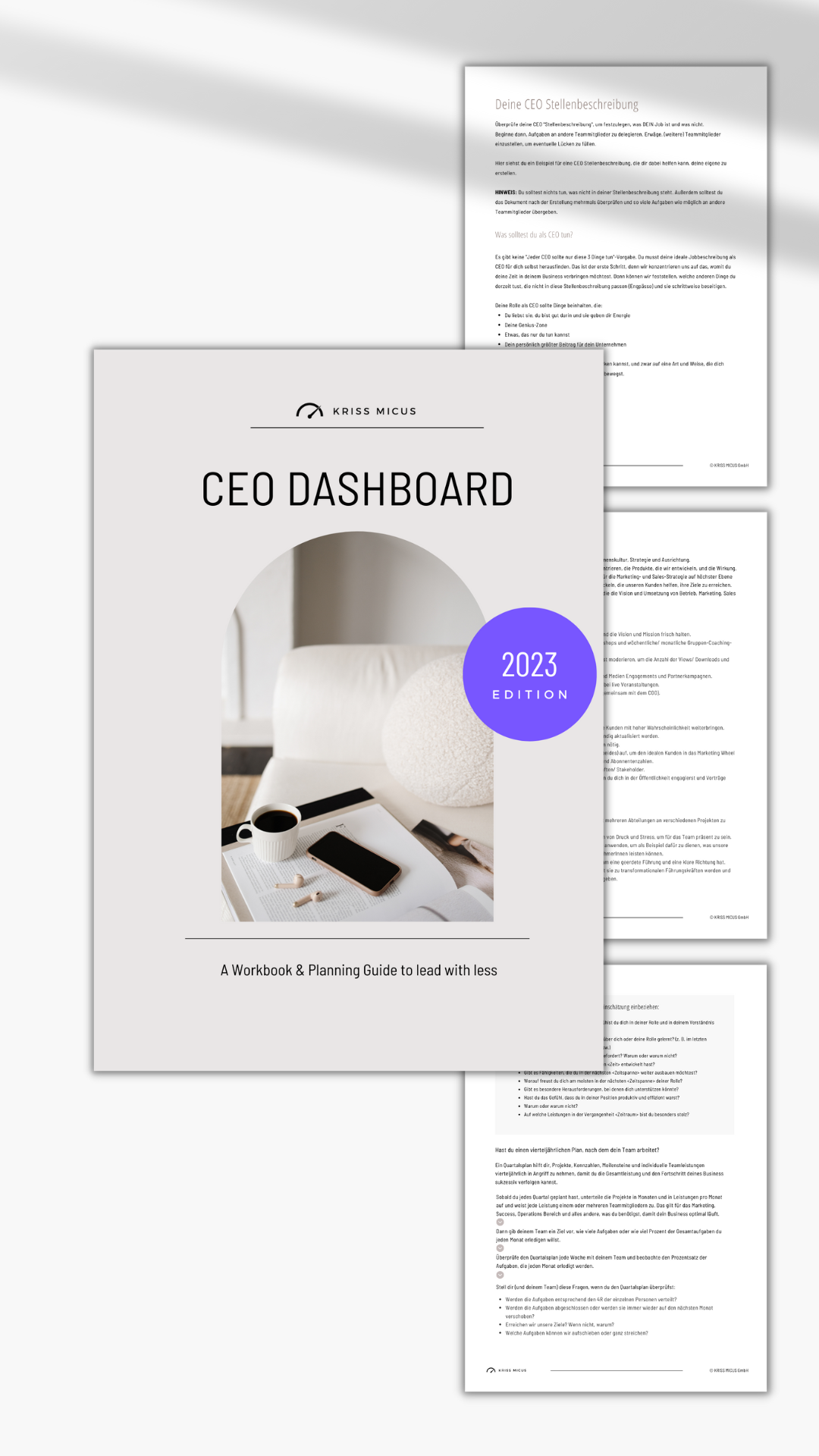How to start a Consulting Business
Part 01/06
A Comprehensive Guide for Beginners
In today's rapidly evolving marketplace, many professionals have begun leveraging their unique skills and expertise by starting consulting businesses.
In 2023, starting a consulting business offers a great chance to have both flexibility and potential for profit. This is an unparalleled opportunity in the ever-changing world. All industries struggle to keep up with rapid technological progress, regulatory changes, and evolving consumer habits. They need expert advice and strategic guidance more than ever before.
Consulting allows professionals to leverage their expertise to help clients overcome challenges and capitalize on opportunities. It offers unparalleled flexibility, empowering individuals to set their working hours, choose their clients, and even determine their service rates. This autonomy makes consulting particularly appealing in our current era, which values work-life balance and entrepreneurial independence.
Moreover, the financial prospects in the consulting industry are attractive. Skilled consultants who can deliver tangible value to their clients have the potential to earn significantly. The digital revolution has also simplified setting up and marketing a consulting business, eliminating the need for substantial start-up costs.
Starting a consulting business in 2023 is a strategic career choice in this ever-evolving, digitally-driven landscape. It offers the ideal blend of professional freedom, financial rewards, and the opportunity to make a genuine impact in your expertise.
Consulting offers many benefits, no matter what your profession is. It offers flexibility, job satisfaction, and potential income growth. Marketing professionals, IT professionals, and finance experts can all benefit from consulting.
But how do you kick-start your consulting venture? In this SEO-optimized guide, we'll walk you through the steps to successfully establish your consulting business.
Starting your consulting business involves numerous steps, but these instructions should provide a clear path. Remember, while the process may seem challenging, it also offers the potential for significant rewards. Refine your strategies and improve your services as you grow. This will put your consulting business in a strong position for success.
Understanding What a Consulting Business Entails

Before we delve into the "how," it's essential to understand a consulting business.
A consultant is an expert who gives professional advice. They specialize in different areas, like management, education, marketing, human resources, and IT. These are just a few examples. As a consultant, you offer your knowledge and skills to help businesses overcome challenges and achieve their objectives.
Launching a consulting business is an exciting venture that offers the potential for professional growth and financial rewards. However, it also requires much work, commitment, and a deep understanding of your chosen field. Here's what you need to know about what running a consulting business entails:
Expertise in Your Field
As a consultant, you're selling your knowledge and expertise, so you need to be an expert in your chosen field. Keep yourself informed about the latest developments in the field of industry.
Continuously improve your skills. Strive to provide clients with the best advice and service.
Business Management Skills
Running a consulting business involves more than just providing consulting services. You'll also need to manage the business side of things, including marketing, finances, client relationship management, and legal considerations.
Flexibility and Adaptability
Each client will present unique challenges, needs, and expectations. Being flexible and adaptable is crucial to delivering personalized solutions and managing the various projects you'll be working on.
Communication and People Skills
Strong communication and people skills are essential in consulting. You must clearly explain your ideas and solutions, handle difficult conversations, build relationships, and earn your client's trust.
Problem-Solving Abilities
Your job as a consultant is to solve problems. You need to be able to think critically, analyze complex situations, and develop effective solutions.
Time Management
You'll likely handle multiple clients and projects simultaneously, so good time management skills are necessary. You need to be able to prioritize tasks, meet deadlines, and ensure quality work without burning out.
Ethical Considerations
Consultants often handle sensitive information, so you must uphold high integrity and professionalism. To uphold ethical standards, it is important to uphold confidentiality, abstain from conflicts of interest, and fulfill commitments.
Continuous Marketing
It is essential to promote your services regularly. This can be done via networking, creating useful content, improving your website's SEO, and other marketing methods. Doing so will ensure a steady flow of clients.
Financial Instability
The income from a consulting business can be unpredictable, especially in the early stages. You'll need to be prepared for periods of financial instability.
Running a consulting business can be a rewarding career for those with the right skills and mindset. It offers the opportunity to work with diverse clients, solve challenging problems, and impact businesses and industries. However, it's not without challenges; understanding these from the outset is crucial to your success.

Identifying Your Niche
The first step in starting a consulting business is identifying your niche. This involves pinpointing your areas of expertise and the services you'll offer. Identify your strengths, weaknesses, and the unique value you can bring to businesses. Are there specific industries or problems where your knowledge could make a significant difference?
Evaluate your professional background, knowledge, and skills.
Identify the areas where your expertise could bring value.
Understand the problems you are uniquely equipped to solve.
Research the industry's demand for such expertise.
Choosing a niche for your consulting business is critical to achieving success. A niche is a specialized market segment where you can apply your expertise.
To differentiate yourself from competitors and establish expertise in your field, it's wise to concentrate on a specific niche.
Furthermore, it will help you attract your ideal clients. Here are the steps to identify your niche:
Evaluate Your Skills and Interests
Start by listing your skills, experiences, and areas of interest. These could come from your previous jobs, education, hobbies, or passions.
If you have experience in digital marketing and a love for sustainable businesses, you could become a consultant. This would involve helping eco-friendly brands to strengthen their online presence.
Identify Industry Needs
Research various industries to identify areas where your skills can fill a gap. Industry reports, job postings, and professional networking events are all potential sources of information. Alternatively, talking to people in the industry directly can be a great way to learn.
Research Competition
Look at what other consultants in your potential niche are doing. Consider their services, pricing, marketing tactics, and client reviews. This can help you find opportunities to differentiate your consulting services.
Understand Your Target Client
Define your ideal client within your chosen niche. Understand their needs, challenges, budget, and where they typically seek consulting services. This will help you tailor your services, pricing, and marketing efforts to attract these clients.
Test Your Idea
Before fully committing to a niche, validate your idea by reaching out to potential clients. You could conduct surveys or interviews, offer free or discounted consultations, or freelance in your niche.
Refine Your Niche
Based on feedback from your target clients, you may need to refine your niche. Perhaps you need to specialize even further, or maybe you need to broaden your scope slightly.
Remember, choosing a niche doesn't mean you're limited to only serving those clients. It simply means focusing on a specific market where you can stand out and succeed.
As your consulting business expands, you can decide to expand or shift your niche. This decision should be based on your experiences and current market trends.
Conducting Market Research
Conduct thorough market research and a feasibility study. Understand the market demand for your services and who your potential clients are, and analyze your competition. This will help you gauge the sustainability of your consulting business and will guide you in making strategic decisions.
Analyze the market to understand the need for your consulting services.
Identify your potential clients and their typical challenges.
Examine the existing competition and their offerings.
Assess the viability of your consulting business based on your findings.

The Power of Conducting Market Research
In the ever-changing business landscape, conducting market research has become an indispensable tool for consultants and entrepreneurs. Market research provides insights into industry trends, customer preferences, and competitive landscapes.
Market research is important. It helps consultants make informed decisions and discover new opportunities. In this article, we explore the advantages of conducting market research.
Understanding Your Target Audience:
Market research allows you to gain a deep understanding of your target audience. Collecting data on demographics, behaviors, needs, and pain points, you can tailor your consulting services to their specific requirements. This knowledge helps you develop targeted marketing strategies, positioning yourself as the ideal solution provider for your niche.
Identifying Market Trends:
Staying abreast of market trends is essential for any consultant looking to remain competitive. Market research helps you identify emerging trends, consumer preferences, and industry shifts.
Examine the given information and adjust your services and strategies to remain competitive. Offer clients new and creative solutions.
Assessing Competitor Strategies:
Market research helps you understand your target audience and provides insights into your competitors. Analyzing competitor strategies, strengths, and weaknesses allows you to position yourself uniquely and identify untapped opportunities. Set yourself apart from your competitors. This will draw in clients looking for a unique perspective or personalized approach.
Unveiling New Opportunities:
Conducting market research uncovers untapped opportunities in the market. It helps you identify gaps in the market where your expertise can fill a need.
Position yourself as a valuable resource for clients. Develop specialized services to address customer pain points and industry challenges. This is important. By understanding these gaps, you can create solutions that meet their needs.
Making Informed Decisions:
Market research provides the data and insights needed to make informed business decisions. Market research can help guide decision-making. This includes expanding into a new market, launching a new service, and pricing offerings. By relying on data rather than assumptions, you minimize risks and maximize the potential for success.
Refining Your Value Proposition:
Market research helps refine your value proposition and communicate your unique selling points. By understanding the needs and preferences of your target audience, you can articulate the specific benefits you bring to the table. This positions you as a consultant who truly understands your clients and can deliver customized solutions that meet their expectations.
Monitoring Customer Satisfaction:
Market research allows you to assess customer satisfaction and measure the effectiveness of your consulting services. By gathering client feedback, you gain valuable insights into their experience and identify areas for improvement. This feedback loop ensures continuous refinement of your services, leading to enhanced client satisfaction and long-term success.
Conducting market research is an invaluable tool for consultants. It empowers them to understand their target audience, identify market trends, assess competitors, and unveil new opportunities. With this information, consultants can make informed decisions, refine their value proposition, and monitor customer satisfaction.
By investing time and effort into thorough market research, consultants position themselves for success in a competitive business landscape. Embrace the power of market research, unlock new opportunities, and provide exceptional value to your clients.
DEO Dashboard Freebie
CEO Dashboard
A workbook and planning guide, for CEOs who want to do more with less.
→ CEO Checklist
→ Growth Audit
→ Financial Audit
and more

Creating a Business Plan
The heart of any successful venture is a solid business plan. This should include an overview of your business, financial projections, marketing strategies, and your unique selling proposition (USP). The business plan will be your roadmap as you navigate the consulting world.
Write an executive summary providing an overview of your consulting business.
Detail your business structure, services, and target market.
Document your marketing strategies, including offline and online activities.
Provide financial projections, including revenue, expenses, and break-even analysis.
A well-structured business plan is an essential roadmap for your consulting business. It outlines your business's goals and the strategies you'll use to achieve them. Here are the steps to create a robust business plan:
Executive Summary
Begin with a concise and clear summary of your business. Include your business name, the services you offer, your mission and vision statements, and the basic details of your business plan.
Company Description
Provide a detailed description of your business. Describe the consulting services you offer, the needs of your clients, and how your services meet those needs. Mention your business's advantages, such as your unique selling proposition (USP).
Market Analysis
This section requires in-depth research on your industry, market, and competitors. Include information about market trends, your target audience, and an analysis of your competitor’s strengths and weaknesses.
Organization and Management
Describe the structure of your business. If you're not a solo consultant, include an organizational chart showing the roles and responsibilities within your business. Include a brief bio of each key member highlighting their relevant experience and skills.
Services
Detail the consulting services you offer. Highlight the benefits of these services to your clients and how they differ from what your competitors offer.
Marketing and Sales Strategy
Outline your strategies for attracting and retaining clients. Include details about your branding, marketing plans, sales strategy, and customer service approach.
Funding Request (if applicable)
If you're seeking funding, specify how much you need and how it will be used. Provide a detailed plan of how the funds will help grow your business and how you plan to repay them.
Financial Projections
Show that your business is viable and profitable. Include revenue and expense forecasts for the next three to five years.
Appendix (optional)
Include any documents that support your business plans. Examples include market research data, resumes of key team members, and letters of support from stakeholders.
Your business plan is not set in stone. As your consulting business expands, reviewing and revising it to include any new objectives or alterations is important. Make sure to keep it up-to-date. A well-maintained business plan can also be valuable in securing funding or attracting new partners.
Remember, it's important to be realistic and honest in your business plan. Overestimating your revenue or underestimating your costs can lead to problems down the line. Keep your assumptions reasonable and always provide justifications for your projections.
Legalities and Paperwork
Before launching, it is important to establish legal compliance. Completing business registration requirements, understanding your tax obligations, obtaining the licenses, and purchasing the required insurance. It's recommended to consult with a lawyer or a professional service to avoid missing any critical steps.
Choose your business structure (sole proprietor, LLC, UG or GmbH etc.) and register your business.
Obtain necessary licenses and permits depending on local, state, and federal laws.
Understand your tax obligations and set up your accounting systems accordingly.
Purchase relevant insurance policies to protect against potential business risks.
Starting a consulting business involves dealing with various legal requirements and paperwork. It's important to properly handle these aspects to protect your business and ensure compliance with laws and regulations. Here's a step-by-step guide to navigating the legalities and paperwork involved:
Choose a Business Structure
Your business structure determines your liability, tax obligations, and the paperwork you must file. Common structures include:
Sole Proprietorship: Suitable for individual consultants. It's easy to set up but doesn't provide personal liability protection.
Partnership: This could be the right structure if you start with one or more partners. Partners share liability and profits.
Limited Liability Company (LLC): This structure protects liability, meaning your assets are separate from the company's assets. It's a popular choice for small businesses.
Corporation: Suitable for larger businesses with multiple employees. It provides liability protection but is more complex to set up and has more regulatory requirements.
Register Your Business
Once you've chosen a business structure, register your business with your state's Secretary of State office. The exact process can vary by state.
Obtain Necessary Licenses and Permits
The licenses and permits you need depends on your location and the type of consulting services you provide. Check with your city, county, and state to understand the requirements.
Apply for an EIN
The IRS uses an Employer Identification Number (EIN) to identify your business for tax purposes. You can apply for an EIN for free on the IRS website.
Set Up Your Business Finances
Open a separate business bank account to separate your personal and business finances. This is especially important for LLCs and corporations. You may also want to hire an accountant or use accounting software to track your income and expenses.
Purchase Business Insurance
Consultants often need professional liability insurance (also known as errors and omissions insurance) to protect against claims from clients. Other types of insurance, like general liability insurance or business property insurance, may also be necessary, depending on your circumstances.
Develop Legal Business Documents
Prepare contracts for your clients that outline the scope of work, payment terms, confidentiality terms, and dispute resolution procedures. You might also need non-disclosure agreements if you'll be handling sensitive information.
Remember, this guide provides a general overview; the requirements can vary depending on your location and industry. Always consult with a legal professional or business advisor to ensure you meet all the legal requirements for your consulting business. This will provide you peace of mind and allow you to focus on delivering excellent consulting services.
